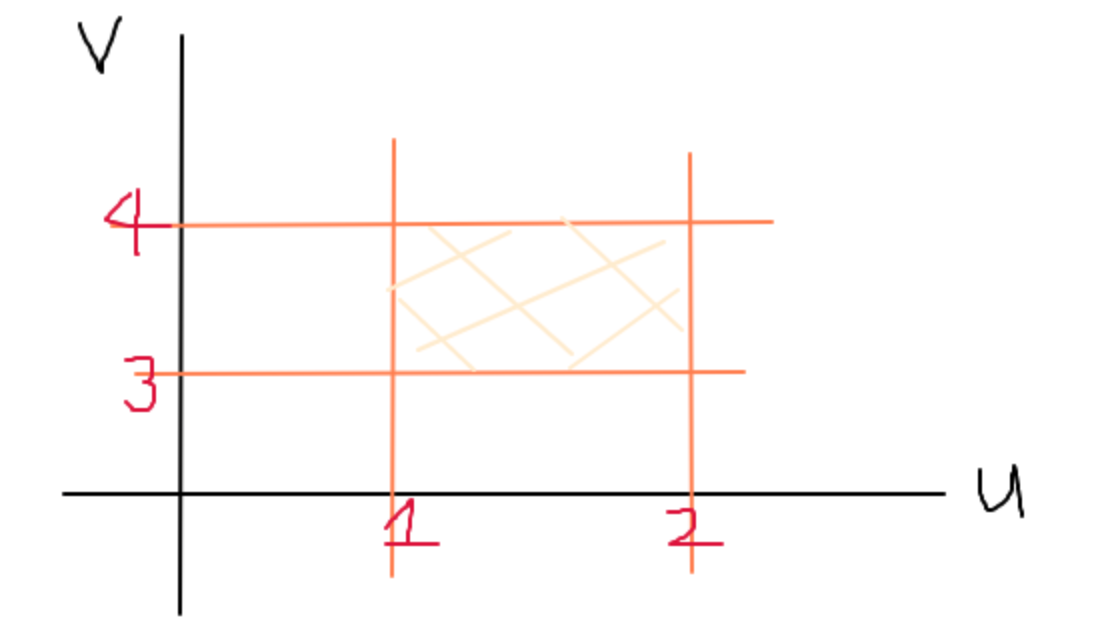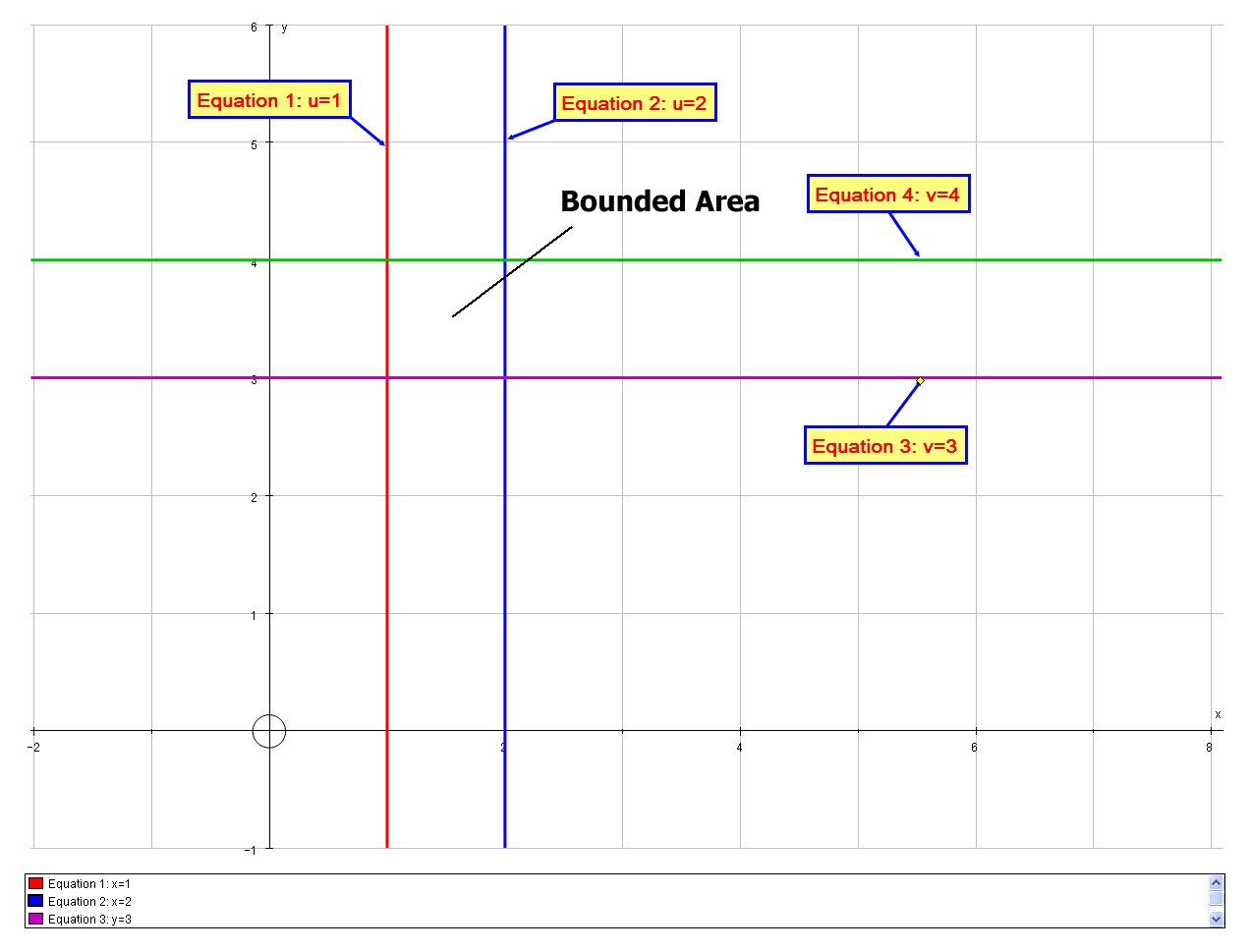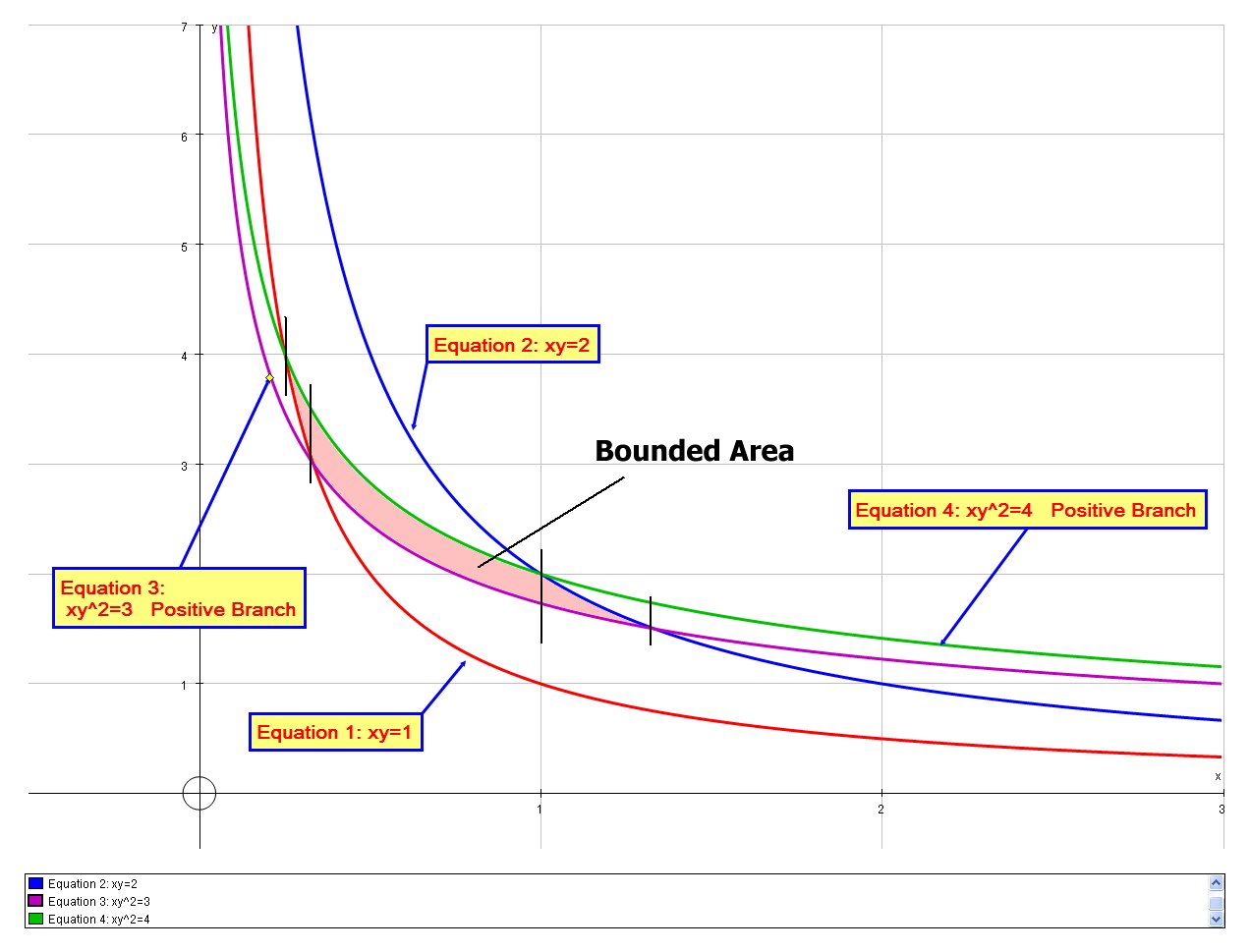Why area=#int_1^2 int_3^4 1/v dudv# is wrong?
A region A is bounded by the hyperbolas #xy# =1 and #xy# = 2, and the curves #xy^2# =3 and #xy^2# = 4. The area of A is denoted by area. Use the change of variables u =#xy# and v = #xy^2# , the area of the image of the region A in the coordinate space determined by (u, v) under the transformation is called area.
And why area=#int_1^2 int_3^4 1/v dudv# is wrong?
A region A is bounded by the hyperbolas
And why area=
2 Answers
See below
Explanation:
Your Jacobian looks good, result looks like:
Transformed region:

The correct double integral is:
# int_3^4 int_1^2 \ 1/v \ du \ dv # which evaluates to# ln(4/3) #
Note carefully, the order of the bounds of integration!
Explanation:
The region
# xy = 1 # ,#xy=2# ,#xy^2=3# and#xy^2=4#
is shown graphically as follows:
If we seek to calculate this region by conventional integration we, must split the area into multiple regions; we need to coordinates of intersection of:
# xy = 1 # and#xy^2=4 => (1/4,4)#
# xy = 1 # and#xy^2=3 => (1/3,3)#
# xy=2# and#xy^2=4 => (1, 2) #
# xy=2# and#xy^2=3 => (4/3 3/2) #
Thus we can calculate the area as
# A = int_(1/4)^(1/3) \ sqrt(4/x) - 1/x \ dx + int_(1/3)^1 \ sqrt(4/x)-sqrt(3/x) \ dx + int_(1)^(4/3) \ 2/x-sqrt(3/x) \ dx #
I will omit the calculation (as it is not really what the question is asking), and we find that:
# A = 4/sqrt(3)-2 - ln(4/3) + 6-10/sqrt(3) + 2sqrt(3)-4+ln(16/9) #
# \ \ = ln(4/3) #
The reason we would use a change of coordinates its to significantly simply the problem, as we can also denote the area problem as a double integral
# A = int int_(bb(R)) \ dxdy #
With the suggested transformation:
# u = xy # and#v=xy^2#
We can transform the problem:
# u = 1 # ,#u=2# ,#v=3# and#v=4#

When we perform a transformation in a double integration we must examine the jacobian to adjust the area element
# (partial(u,v))/(partial(x,y)) = | ( (partial u)/(partial x) , (partial u)/(partial y) ), ( (partial v)/(partial x) , (partial v)/(partial y) ) | = | ( y , x ), ( y^2 , 2xy ) | #
# \ \ \ \ \ \ \ \ \ \ \ \ \ =2xy^2-xy^2 =xy^2 = v#
And we seek the Jacobian:
# J = (partial(x,y))/(partial(u,v)) = 1/v #
Hence, we can denote the area by the double integral:
# A = int int_(bb(R)) \ dx \ dy #
# \ \ = int int_(bb(R)) \ J \ du \ dv #
# \ \ = int_3^4 int_1^2 \ 1/v \ du \ dv #
# \ \ = int_3^4 1/v[u]_1^2 \ dv #
# \ \ = int_3^4 1/v \ dv #
# \ \ = [ln v]_3^4 #
# \ \ = (ln4-ln3) #
# \ \ = ln(4/3) #
Note carefully, the order of the bounds of integration!



